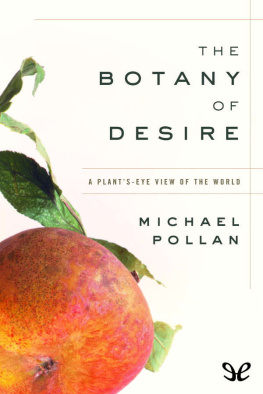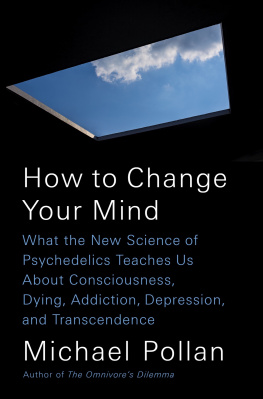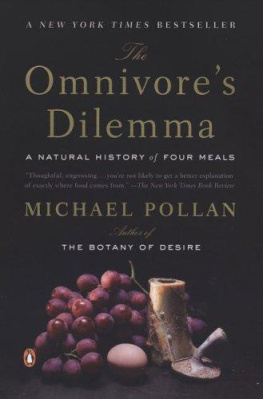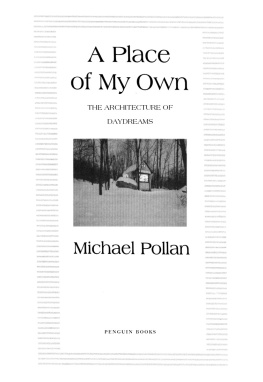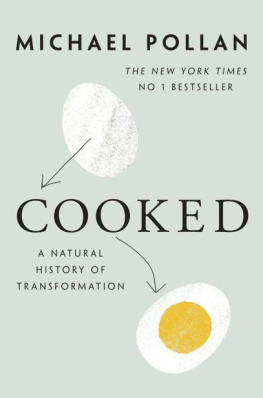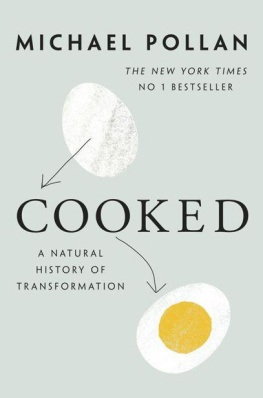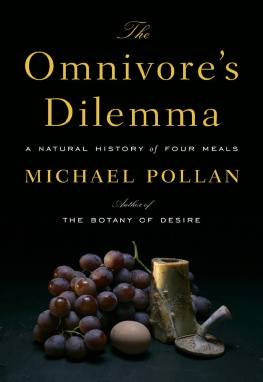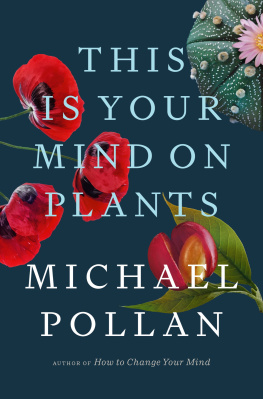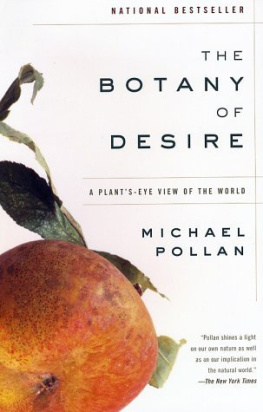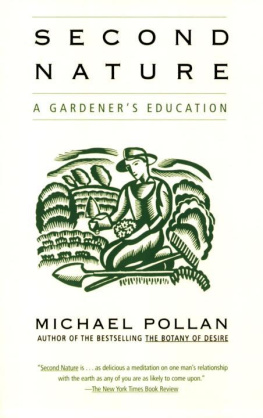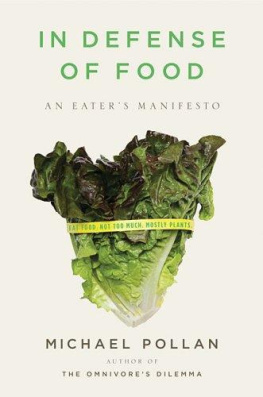Michael Pollan - The Botany of Desire
Here you can read online Michael Pollan - The Botany of Desire full text of the book (entire story) in english for free. Download pdf and epub, get meaning, cover and reviews about this ebook. year: 2001, publisher: ePubLibre, genre: Religion. Description of the work, (preface) as well as reviews are available. Best literature library LitArk.com created for fans of good reading and offers a wide selection of genres:
Romance novel
Science fiction
Adventure
Detective
Science
History
Home and family
Prose
Art
Politics
Computer
Non-fiction
Religion
Business
Children
Humor
Choose a favorite category and find really read worthwhile books. Enjoy immersion in the world of imagination, feel the emotions of the characters or learn something new for yourself, make an fascinating discovery.
- Book:The Botany of Desire
- Author:
- Publisher:ePubLibre
- Genre:
- Year:2001
- Rating:3 / 5
- Favourites:Add to favourites
- Your mark:
- 60
- 1
- 2
- 3
- 4
- 5
The Botany of Desire: summary, description and annotation
We offer to read an annotation, description, summary or preface (depends on what the author of the book "The Botany of Desire" wrote himself). If you haven't found the necessary information about the book — write in the comments, we will try to find it.
The Botany of Desire — read online for free the complete book (whole text) full work
Below is the text of the book, divided by pages. System saving the place of the last page read, allows you to conveniently read the book "The Botany of Desire" online for free, without having to search again every time where you left off. Put a bookmark, and you can go to the page where you finished reading at any time.
Font size:
Interval:
Bookmark:

For my parents, who never doubted (or, if they did, never let it show); and my grandfather, with gratitude
Working in his garden one day, Michael Pollan hit pay dirt in the form of an idea: do plants, he wondered, use humans as much as we use them? While the question is not entirely original, the way Pollan examines this complex coevolution by looking at the natural world from the perspective of plants is unique. The result is a fascinating and engaging look at the true nature of domestication.
In making his point, Pollan focuses on the relationship between humans and four specific plants: apples, tulips, marijuana, and potatoes. He uses the history of John Chapman (Johnny Appleseed) to illustrate how both the apple's sweetness and its role in the production of alcoholic cider made it appealing to settlers moving west, thus greatly expanding the plant's range. He also explains how human manipulation of the plant has weakened it, so that "modern apples require more pesticide than any other food crop." The tulipomania of 17th-century Holland is a backdrop for his examination of the role the tulip's beauty played in wildly influencing human behavior to both the benefit and detriment of the plant (the markings that made the tulip so attractive to the Dutch were actually caused by a virus). His excellent discussion of the potato combines a history of the plant with a prime example of how biotechnology is changing our relationship to nature. As part of his research, Pollan visited the Monsanto company headquarters and planted some of their NewLeaf brand potatoes in his garden--seeds that had been genetically engineered to produce their own insecticide. Though they worked as advertised, he made some startling discoveries, primarily that the NewLeaf plants themselves are registered as a pesticide by the EPA and that federal law prohibits anyone from reaping more than one crop per seed packet. And in a interesting aside, he explains how a global desire for consistently perfect French fries contributes to both damaging monoculture and the genetic engineering necessary to support it.
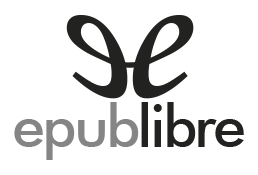
Michael Pollan
A Plants-Eye View of the World
ePub r1.1
chungalitos05.09.13
Michael Pollan, 2001
Editor digital: chungalitos
ePub base r1.0


MICHAEL POLLAN. A contributing writer for The New York Times Magazine, is the author of Second Nature and A Place of My Own, a New York Times Notable Book of the Year in 1997. His writing has received numerous awards, including the QPB New Visions prize (for Second Nature) and the first ReutersWorld Conservation Union Global Award for Excellence in Environmental Journalism. Pollan lives in Cornwall Bridge, Connecticut, with his wife, the painter Judith Belzer, and their son, Isaac.
The Human Bumblebee
The seeds of this book were first planted in my gardenwhile I was planting seeds, as a matter of fact. Sowing seed is pleasant, desultory, not terribly challenging work; theres plenty of space left over for thinking about other things while youre doing it. On this particular May afternoon, I happened to be sowing rows in the neighborhood of a flowering apple tree that was fairly vibrating with bees. And what I found myself thinking about was this: What existential difference is there between the human beings role in this (or any) garden and the bumblebees?
If this sounds like a laughable comparison, consider what it was I was doing in the garden that afternoon: disseminating the genes of one species and not another, in this case a fingerling potato instead of, lets say, a leek. Gardeners like me tend to think such choices are our sovereign prerogative: in the space of this garden, I tell myself, I alone determine which species will thrive and which will disappear. Im in charge here, in other words, and behind me stand other humans still more in charge: the long chain of gardeners and botanists, plant breeders, and, these days, genetic engineers who selected, developed, or bred the particular potato that I decided to plant. Even our grammar makes the terms of this relationship perfectly clear: I choose the plants, I pull the weeds, I harvest the crops. We divide the world into subjects and objects, and here in the garden, as in nature generally, we humans are the subjects.
But that afternoon in the garden I found myself wondering: What if that grammar is all wrong? What if its really nothing more than a self-serving conceit? A bumblebee would probably also regard himself as a subject in the garden and the bloom hes plundering for its drop of nectar as an object. But we know that this is just a failure of his imagination. The truth of the matter is that the flower has cleverly manipulated the bee into hauling its pollen from blossom to blossom.
The ancient relationship between bees and flowers is a classic example of what is known as coevolution. In a coevolutionary bargain like the one struck by the bee and the apple tree, the two parties act on each other to advance their individual interests but wind up trading favors: food for the bee, transportation for the apple genes. Consciousness neednt enter into it on either side, and the traditional distinction between subject and object is meaningless.
Matters between me and the spud I was planting, I realized, really arent much different; we, too, are partners in a coevolutionary relationship, as indeed we have been ever since the birth of agriculture more than ten thousand years ago. Like the apple blossom, whose form and scent have been selected by bees over countless generations, the size and taste of the potato have been selected over countless generations by usby Incas and Irishmen, even by people like me ordering french fries at McDonalds. Bees and humans alike have their criteria for selection: symmetry and sweetness in the case of the bee; heft and nutritional value in the case of the potato-eating human. The fact that one of us has evolved to become intermittently aware of its desires makes no difference whatsoever to the flower or the potato taking part in this arrangement. All those plants care about is what every being cares about on the most basic genetic level: making more copies of itself. Through trial and error these plant species have found that the best way to do that is to induce animalsbees or people, it hardly mattersto spread their genes. How? By playing on the animals desires, conscious and otherwise. The flowers and spuds that manage to do this most effectively are the ones that get to be fruitful and multiply.
So the question arose in my mind that day: Did I choose to plant these potatoes, or did the potato make me do it? In fact, both statements are true. I can remember the exact moment that spud seduced me, showing off its knobby charms in the pages of a seed catalog. I think it was the tasty-sounding buttery yellow flesh that did it. This was a trivial, semiconscious event; it never occurred to me that our catalog encounter was of any evolutionary consequence whatsoever. Yet evolution consists of an infinitude of trivial, unconscious events, and in the evolution of the potato my reading of a particular seed catalog on a particular January evening counts as one of them.
Font size:
Interval:
Bookmark:
Similar books «The Botany of Desire»
Look at similar books to The Botany of Desire. We have selected literature similar in name and meaning in the hope of providing readers with more options to find new, interesting, not yet read works.
Discussion, reviews of the book The Botany of Desire and just readers' own opinions. Leave your comments, write what you think about the work, its meaning or the main characters. Specify what exactly you liked and what you didn't like, and why you think so.

